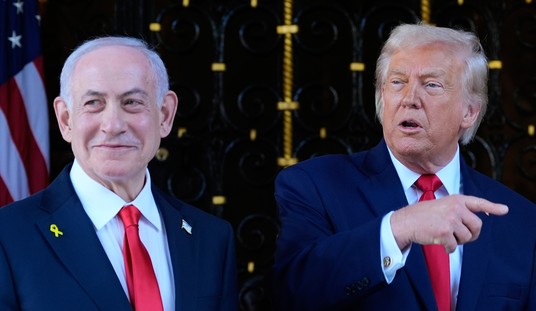Under the headline “U.S. needs to plan for the day after an Iran deal,” Thursday’s Washington Post carried an op-ed by former Gen. David Petraeus and former Senate staffer Vance Serchuck, in which they made some vital points about what might lie beyond the Iran nuclear talks. Most important: Even if the U.S. and its negotiating cohorts reach the desired nuclear deal with Iran, the threat from Iran does not by any stretch end there. Petraeus and Serchuk argue that the result could make Iran, in some ways, even more dangerous.
Why? Well, under the Joint Plan of Action that frames the nuclear bargaining sessions in Vienna, the aim is to reach a “comprehensive agreement” that would stop Iran from getting nuclear weapons. Iran, in turn, would enjoy among other things the lifting of the large web of nuclear-related sanctions that have been constraining its economy.
But, as Petraeus and Serchuk point out, “lifting sanctions would also lead to the economic empowerment of a government that is the leading state sponsor of terrorism.” And once the U.S. and its partners go down that road, they say, the likeliest result would be to “strengthen Tehran’s ability to project malign influence in its near-abroad, including Syria, Lebanon, Iraq, the Arabian peninsula and the Palestinian territories.”
As they further argue: “Rather than marking the end of our long struggle with Iran, therefore, a successful nuclear deal could result in the United States and our partners in the Middle East facing a better-resourced, and, in some respects, more dangerous adversary.”
They prescribe a number of steps that should be taken to try to mitigate these risks, including “a clear plan for immediate reimposition of crippling sanctions in the event of inadequate Iranian implementation of an agreement.”
Please allow me to rephrase that last item more bluntly. The further danger is that Iran might reap the benefits for its terror networks and malign reach — but also cheat on a deal and get nuclear weapons anyway. To my mind, if these nuclear talks keep rolling forward — as the Obama administration seems desperately eager for them to do — that mix of enhanced terror reach, plus nuclear weapons, seems the likeliest result. Perhaps that explains the chronic grin on the face of Iran’s foreign minister and chief nuclear negotiator, Mohammad Javad Zarif.









Join the conversation as a VIP Member